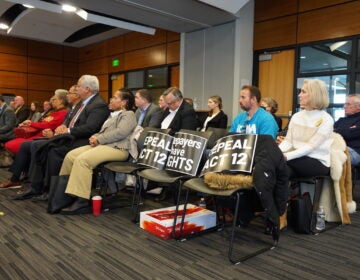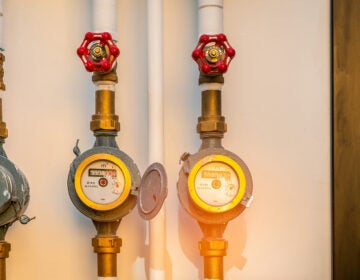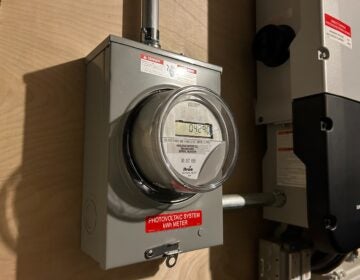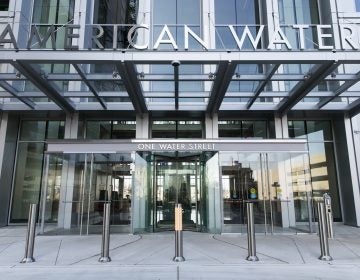Water privatization has led to rate hikes. Pa. regulators are now adding oversight to help keep bills from rising
With water bills on the rise, the Pennsylvania Public Utility Commission voted in favor of an order to bring more transparency and review procedures to water privatization.
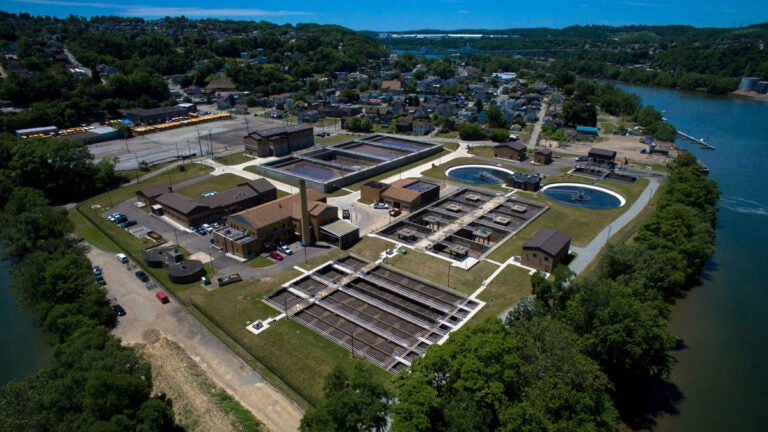
McKeesport is one of few municipalities that have used Act 12, a law that offers a different way to privatize water systems in Pennsylvania. (Image courtesy of the Municipal Authority of the City of McKeesport website)
From Philly and the Pa. suburbs to South Jersey and Delaware, what would you like WHYY News to cover? Let us know!
In an effort to keep residential water bills from rising due to privatization, Pennsylvania regulators are making changes to a state law that opened the floodgates for for-profit companies to take over public systems.
The Pennsylvania Public Utility Commission voted in favor of an order Thursday morning to bring more transparency and review procedures to its decisions on privatization of water and sewer systems.
In 2016, state lawmakers passed Act 12, which created a process to determine the value of a public water system including its assets, expected revenue and potential repair costs. The process has led to high-dollar acquisition deals.
As a result, the state has seen nearly two dozen public water systems sell off assets to for-profit companies. Since then, customer rates have jumped in some places. In Chester County, New Garden Township rates have risen upwards of 90%.
Critics of the law believe it incentivizes for-profit water companies to lure municipalities into inflated deals for public water and wastewater systems — and then turn around and recoup their purchase price through rate hikes.
The PUC, which has to approve these deals, revised Act 12 by establishing public meeting requirements, enhanced rate notification for customers, standardization of methods used by utility valuation experts and a “reasonable review ratio.”
The “reasonable review ratio” is a new criteria for the PUC to assess the fairness of acquisition prices.
“I am pleased to support this necessary step forward which I believe will better inform the public about 1329 proceedings, improve the public’s understanding of potential rate impacts, and establish additional guidelines for the Commission to utilize in determining the prudency of acquisition prices and their prospective effects on customer rates,” PUC Chair Stephen DeFrank said in his motion.
The PUC first introduced these potential changes in February. Section 1329 refers to the part of Act 12 that governs applications for privatization.
Reaction from critics of Act 12 was lukewarm. Some welcomed the changes as a sign of progress but want the legislature to scrap the law altogether.
“We’re glad the PUC is starting to recognize the harms of Act 12 by adopting this order, but they are hamstrung by how the law is written and it is incumbent on the General Assembly to repeal Act 12,” said Kofi Osei, founder of Towamencin Neighbors Opposing Privatization Efforts in a statement.
Towamencin Township in Montgomery County has been the site of an ongoing battle over the potential sale of its public sewer and water system to Pennsylvania American Water. The case remains deadlocked.
Supporters of the state’s water privatization law believe it gives municipalities suffering under the strain of fiscal pressures the opportunity to offload water systems in need of repair to private companies like Aqua Pennsylvania, in exchange for large sums of money that would go to pay for new infrastructure and facility upgrades.
Big water companies argue they are in a better financial position to take care of some of the Commonwealth’s aging and ailing public infrastructure, especially in the face of new PFAS regulations.
But ratepayers in some of these municipalities where the deals have gone through, say they are on the hook in the long run with high water bills.
“While the PUC’s decision is an apparent admission of the harm of Act 12, the order lacks the teeth necessary to truly address it,” said Ginny Marcille-Kerslake, eastern Pennsylvania organizer with Food & Water Watch in a statement. “An outright repeal of Act 12 is the only way to provide real relief to the Pennsylvanians suffering from the rate gouging from the big water corporations.”
While the state legislature has held various committee hearings on water privatization, it is unclear if there is enough support in Harrisburg for an appeal of Act 12.

Get daily updates from WHYY News!
WHYY is your source for fact-based, in-depth journalism and information. As a nonprofit organization, we rely on financial support from readers like you. Please give today.



